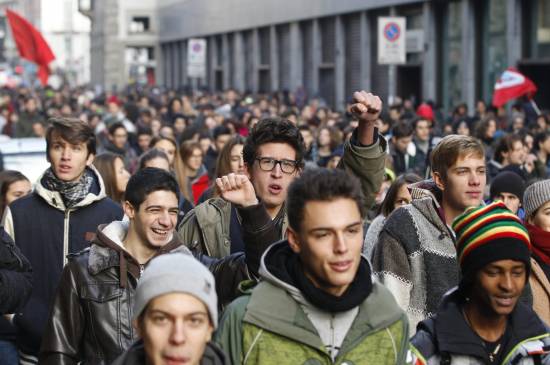Italy unions protest over projected decline in school spending Featured
Italian government forecasts showing a steady decline in education spending triggered an angry reaction on Monday from the country's trade unions, which threatened strikes and protests.
The government's multiyear economic planning document (DEF) published on Friday showed education expenditure projected to fall to 3.5% of the gross domestic product in 2025 from 4% in 2020.
The 2020 level was already well below the European Union average of around 5% of the GDP, Eurostat data shows.
The DEF projections "show grave short-sightedness that our country will pay heavily for in the future," said Rino Di Meglio, the head of the Gilda teachers union. "We will consult our members and organize protests over the next few days."
The Education Ministry was not immediately available to comment.
Italian students are among the worst performers in the European Union in mathematics, science and reading, according to the Programme for International Student Assessment tests overseen by the Organisation for Economic Co-operation and Development.
The DEF linked the projected fall in education spending to Italy's falling birth rate. This was rejected by the unions who said the fall in school-age Italians was being compensated for by immigration.
"We expect no decline in the school population, we have just absorbed 10,000 Ukrainian children in our schools in the last few weeks, this is what we have to face," said Di Meglio.
The teachers' section of Italy's largest union confederation, the CGIL, said it was "madness" for the government to be projecting education cuts while increasing military spending, as Prime Minister Mario Draghi has pledged to do.
The unions accused the government of backtracking on the priorities Draghi set out when he stressed the importance of education in his maiden speech to parliament 14 months ago.
"After heaps of rhetoric, we're heading for spending cuts," said Francesco Sinopoli, head of the CGIL's teaching union.
"We are returning to an austerity scenario when we should be increasing investment. If this goes ahead we will take to the streets with every possible protest, including strikes."/Reuters


